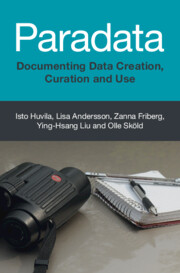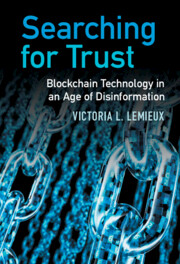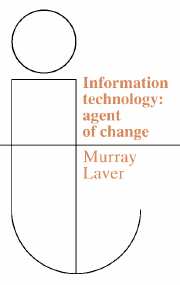Paradata
To make sense of data and use it effectively, it is essential to know where it comes from and how it has been processed and used. This is the domain of paradata, an emerging interdisciplinary field with wide applications. As digital data rapidly accumulates in repositories worldwide, this comprehensive introductory book, the first of its kind, shows how to make that data accessible and reusable. In addition to covering basic concepts of paradata, the book supports practice with coverage of methods for generating, documenting, identifying and managing paradata, including formal metadata, narrative descriptions and qualitative and quantitative backtracking. The book also develops a unifying reference model to help readers contextualise the role of paradata within a wider system of knowledge, practices and processes, and provides a vision for the future of the field. This guide to general principles and practice is ideal for researchers, students and data managers. This title is also available as open access on Cambridge Core.
- Covers general concepts of paradata which can be applied to a wide range of domains from heritage preservation to online learning
- Allows readers to choose to focus on theory or practice through division of material
- This title is also available as open access on Cambridge Core
Reviews & endorsements
'The book Paradata: Documenting Data Creation, Curation, and Use is a remarkable contribution to the field, offering deep insights into the complex practices and processes behind data documentation. By exploring the multifaceted nature of paradata, the book emphasizes its crucial role in ensuring the clarity, reuse, and long-term value of research data. The interdisciplinary approach, drawing from archaeology and information science, presents a comprehensive framework for understanding and managing paradata, making it an essential resource for researchers and practitioners alike. Paradata is something that we all need to embrace and understand in our data-driven world, and this book is a wonderful compilation, offering insights and invaluable context. Congratulation to the chief editor, advisory board members, all those who gave feedback, and the contributing authors.' Jane Greenberg, Drexel University
'Huvila and his colleagues provide a much-needed and timely analysis of 'paradata'. Paradata help us to understand the processes by which data are conceptualised and made, and those processes are never neutral nor innocent. Understanding these processes is crucial for the effective management, storage and re-use of data.' Sally Wyatt, Maastricht University, The Netherlands
'If you are looking for an understandable and thorough discussion of how data is created and curated, Paradata is for you. Both a summation of the European Research Council funded CAPTURE research project and a primer on the concept and complexities of what makes up paradata - including data creation, curation and use - this book is of interest to a wide audience of information professionals or everyone who works with research data in any stage.' Carol Tenopir, University of Tennessee, Knoxville (Emerita)
'This insightful volume introduces the concept of paradata: documentation of the circumstances in which data is made, managed, and used. Huvila and co-authors integrate comprehensive literature synthesis with robust empirical findings to produce an accessibly written, thought-provoking book. Scholars, practitioners, and students of data practices, data management, and data policy will find this book to be a rich and helpful resource.' Melanie Feinberg, University of North Carolina at Chapel Hill
Product details
July 2025Hardback
9781009366588
254 pages
229 × 152 mm
60 b/w illus.
Not yet published - available from July 2025
Table of Contents
- 1. Introduction: paradata: documenting data creation, management and use Isto Huvila
- 2. The concept of paradata Olle Sköld
- 3. Paradata 'in the wild': how and where paradata emerges in research documentation Olle Sköld and Lisa Andersson
- 4. Methods for generating and documenting paradata Ying-Hsang Liu and Isto Huvila
- 5. Methods for identifying paradata for data reuse Ying-Hsang Liu and Isto Huvila
- 6. Methods for managing paradata Zanna Friberg and Isto Huvila
- 7. A paradata reference model Isto Huvila
- 8. Future directions: making paradata matter Isto Huvila
- Index.




